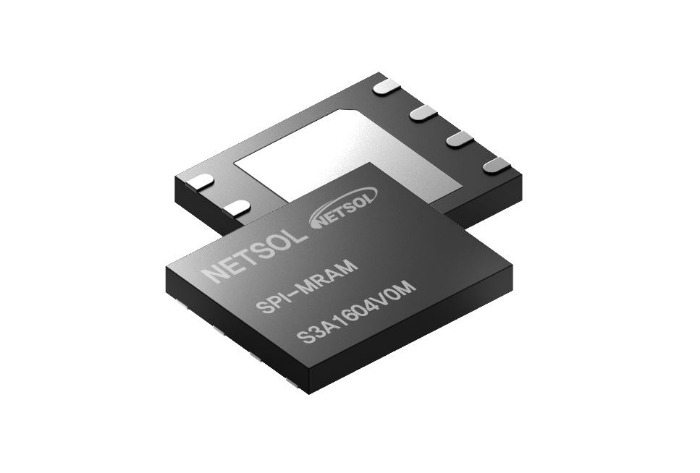-
KOSPI 2577.27 -2.21 -0.09%
-
KOSDAQ 722.52 -7.07 -0.97%
-
KOSPI200 341.49 +0.02 +0.01%
-
USD/KRW 1396 -2.00 0.14%
Chipmaker Netsol unveils first STT-MRAM in South Korea
Korean startups
Chipmaker Netsol unveils first STT-MRAM in South Korea
The STT-MRAMs are manufactured by Samsung Electronics' foundry, showing growing partnerships among conglomerates and smaller firms
By
Nov 11, 2022 (Gmt+09:00)
1
Min read
News+

South Korea’s fabless memory semiconductor design house Netsol announced on Friday that it developed the country’s first STT-MRAM, a next-generation memory chip.
An STT-MRAM is an advanced type of magnetoresistive that uses the magnetism of electron spin to provide non-volatile properties in semiconductors.
The STT-MRAMs have recently been made by Samsung Electronics Co.’s foundry, which experts say points to growing partnerships among conglomerates and smaller companies in the semiconductor sector.
Established in 2010, Netsol develops and markets non-commodity memory products. The products are named Async Fast SRAM, Low Power SRAM, and Sync SRAM, among others.
Netsol’s SST-MRAM boasts low electric power and a more compact size, thanks to the Samsung foundry’s 28-nanometer FD-SOI processing.
The startup plans to mass produce the STT-MRAM this year and go through an initial public offering (IPO) in 2024.
The company hopes to provide alternatives in a wide range of industries from the internet of things to medical and automotive.
MRAM, which stands for magnetoresistive random access memory, is a method of storing data bits using magnetic states instead of electrical charges used by devices such as DRAM.
Arizona-based Everspin Technologies is an industry leader in the global DRAM market.
The global DRAM market is forecast to grow to be worth $952.7 million by 2024, according to market research firm TechNavio.
Write to Kyoung ju Kang at qurasoha@hankyung.com
Jee Abbey Lee edited this article.
More To Read
-
 CryptocurrenciesRedotPay lands in Seoul with crypto cards
CryptocurrenciesRedotPay lands in Seoul with crypto cardsMay 09, 2025 (Gmt+09:00)
-
May 09, 2025 (Gmt+09:00)
-
 Corporate strategyHankook & Company to set up CVC with $11 mn in funding
Corporate strategyHankook & Company to set up CVC with $11 mn in fundingMay 09, 2025 (Gmt+09:00)
-
 Electric vehiclesBYD’s Atto 3 overtakes Tesla’s Model Y as best-selling EV in South Korea
Electric vehiclesBYD’s Atto 3 overtakes Tesla’s Model Y as best-selling EV in South KoreaMay 09, 2025 (Gmt+09:00)
-
May 08, 2025 (Gmt+09:00)




